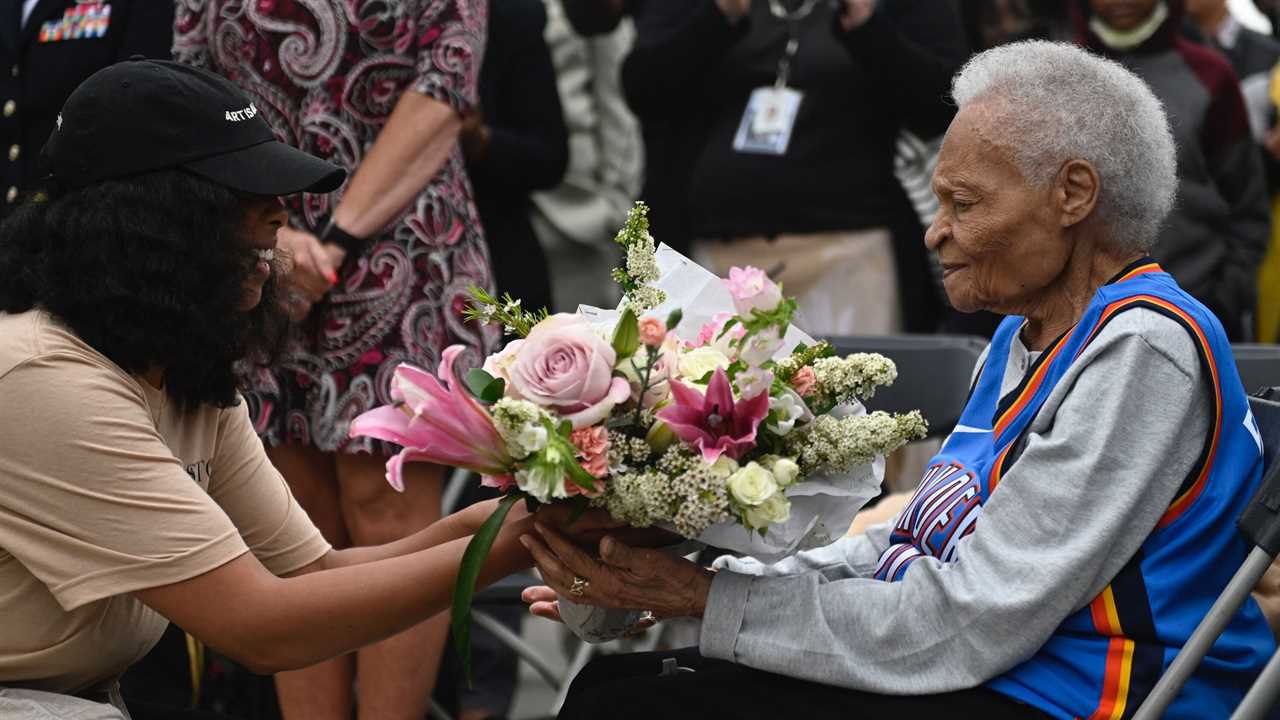
President Biden will meet privately on Tuesday with surviving members of the 1921 massacre in Greenwood, the African-American community in Tulsa, Okla., that was destroyed by a white mob 100 years ago, helping to shine a spotlight on one of the worst outbreaks of racist violence in American history as he strives to make racial equity and justice central themes of his presidency.
In remarks during his visit, Mr. Biden is expected to highlight steps his administration is taking to help financially struggling minority communities and to begin to close the wealth gap between Black and white people in the United States, according to administration officials.
The president’s announcements — timed to underscore the legacy of anti-Black sentiment that fueled the mob in Greenwood — will include efforts to direct more federal spending to small and minority-owned business, fair housing enhancements, and programs that are intended to repair the damage to neighborhoods divided by transportation projects.
Mr. Biden will not announce a plan to cancel student debt, which disproportionately affects Black students. The NAACP and other civil rights groups have criticized the administration for not taking that step, saying it is one of the biggest obstacles holding Black people back from sharing in the wealth of other Americans.
“Student loan debt continues to suppress the economic prosperity of Black Americans across the nation,” Derrick Johnson, the NAACP president, said in a statement. “You cannot begin to address the racial wealth gap without addressing the student loan debt crisis.”
In a briefing for reporters on Monday night, administration officials said they had nothing to announce about student debt, but insisted that the other steps would help Black people around the country, particularly hard-hit communities like Greenwood.
Mr. Biden will be the first president to visit Tulsa to commemorate the massacre. The survivors he will meet with — each between the ages of 101 and 107 — lived through the events of May 31 and June 1 in 1921, when angry whites descended on Greenwood, a prosperous part of Tulsa known as Black Wall Street, killing as many as 300 people and destroying more than 1,250 homes. The violent and searing episode was rarely mentioned in history books.
Mr. Biden’s visit is part of an effort to lift the silence. In addition to meeting with the aging survivors, the president will tour the Greenwood Cultural Center and deliver remarks commemorating the victims on the anniversary of the massacre.
The trip comes as the country struggles to confront police brutality toward Black people and other people of color following a year of Black Lives Matter protests around the country. The killing of George Floyd by a Minneapolis police officer, and other similar episodes, galvanized the country.
But the political response to the recent killings remains uncertain. Mr. Biden had vowed to secure passage of the George Floyd Justice in Policing Act by May 25, the first anniversary of Mr. Floyd’s death. The bill would ban the police’s use of chokeholds, impose restrictions on deadly force and make it easier to prosecute officers for wrongdoing.
He missed that deadline, but lawmakers in both parties have expressed optimism that they will be able to reach a compromise on the legislation in the weeks ahead.
Mr. Biden’s visit to Tulsa is certain to be a somber one. The massacre was sparked by the arrest of Dick Rowland, 19, a Black shoe shiner who was accused of assault against Sarah Page, 17, a white elevator operator. The case was later dismissed, but the mob that formed in the wake of Mr. Rowland’s arrest destroyed much of Greenwood.
But for the president, his speech and meetings with the survivors are also an opportunity to underscore again his push for racial equity and justice, which he has said are at the heart of his agenda at the White House.
“The attack on Black families and Black wealth in Greenwood persisted across generations,” Mr. Biden said on Sunday in a proclamation honoring the anniversary of the Tulsa massacre. “The federal government must reckon with and acknowledge the role that it has played in stripping wealth and opportunity from Black communities.”
Administration officials said Mr. Biden would not announce any steps specifically aimed at Greenwood and would not call for reparations for the descendants of the massacre 100 years ago. Officials said that, as with the broader issue of reparations for Black Americans, the president supports a study of the issue.
But officials said that Mr. Biden’s visit on Tuesday was intended to signal a new emphasis on racial equity and justice for Black Americans.
Despite investigations, no one was ever convicted of crimes related to the massacre. Mr. Biden has promised that his Justice Department will be a more active participant in helping to root out bias and bigotry in American police departments. The department has already begun “pattern or practice” investigations in Louisville, Ky., and Minneapolis, which are intended to examine excessive force, biased policing and other misconduct by officers.






